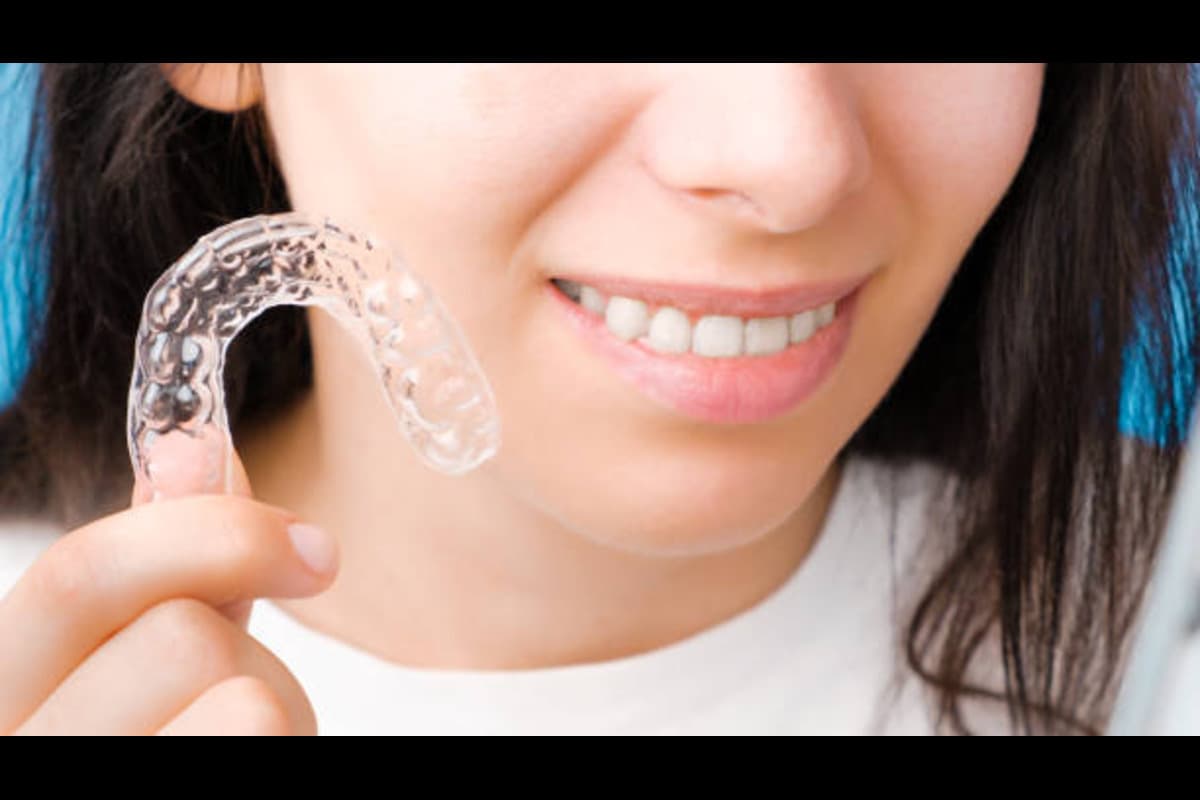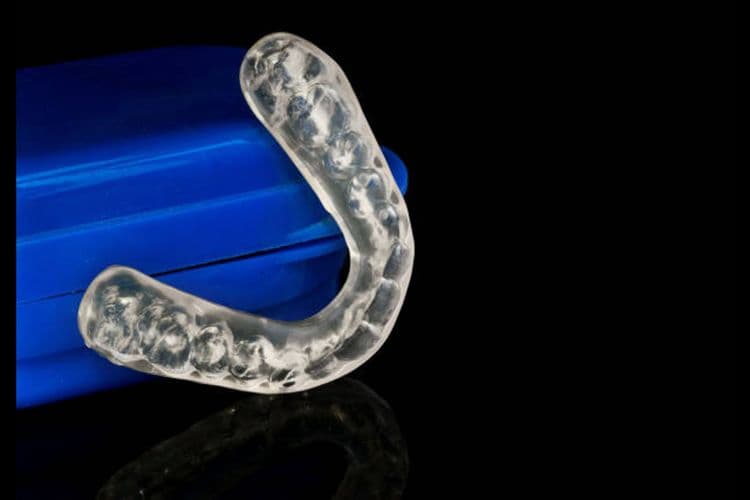While it is generally accepted that night guards are primarily designed for night-time use, to alleviate the effects of conditions such as bruxism or temporomandibular joint (TMJ) issues, the question arises whether or not they can be worn during the day. Surely, if they provide relief and protection whilst we sleep, their benefits could extend into our waking hours? However, practical concerns such as speech interference and social perceptions may present challenges. Could these be overcome with the right type of guard and proper care? This topic warrants a closer look into the pros and cons of daytime wear of night guards.
Understanding Night Guards
Night guards, a specialized type of dental appliance, are primarily designed for use during sleep to mitigate the harmful effects of bruxism, a condition characterized by grinding or clenching of the teeth. There are various night guard types available, each tailored to specific needs and comfort levels. Some popular types include custom-made night guards, boil and bite guards, and over-the-counter guards. Custom-made night guards, designed by dental professionals, offer the best fit and protection. The fitting process involves an impression of your teeth to guarantee a perfect match. Boil and bite guards, meanwhile, allow for a degree of customization, while over-the-counter options provide the most accessible, though not always the most comfortable or effective, solutions.
The Purpose of Night Guards
Primarily designed to counteract the detrimental effects of bruxism, night guards serve a critical role in oral health management. These custom-fitted oral devices provide a barrier between your upper and lower teeth, preventing the wear and tear caused by grinding or clenching. Beyond physical protection, one of the significant night guard benefits includes the improvement of sleep quality. The discomfort and pain caused by bruxism can often interrupt sleep, leading to a lack of rest and associated health issues. By mitigating this, night guards contribute to better sleep hygiene. In addition, they help in reducing the risk of temporomandibular joint disorders. Overall, the purpose of night guards extends from protecting oral health to enhancing overall well-being.
Pros of Wearing Night Guards Daytime
The benefits of wearing night guards during the daytime are diverse and remarkable. Their use can greatly mitigate daytime teeth grinding, a common issue for many individuals. In addition, their suitability for long-term wear and potential to enhance overall oral health protection make them a valuable tool in preserving dental wellbeing.
Reducing Daytime Teeth Grinding
Addressing the issue of daytime teeth grinding, wearing a night guard can serve as a practical solution. This condition, medically known as bruxism, often has multifaceted roots, including stress, anxiety, and sleep disorders. Night guards, although typically designed for nighttime use, can be worn during the day to buffer the impact and prevent the wear and tear caused by grinding. By alleviating the physical symptoms of bruxism, this aids in breaking the cycle of pain and stress. Moreover, it’s essential to understand the teeth grinding causes to implement effective stress management strategies. Along with wearing a night guard, reducing stress through relaxation techniques and lifestyle changes can greatly decrease the frequency and severity of daytime teeth grinding.
Convenient for Long-Term Wear
While some may consider the use of night guards only suitable for night-time wear, they have proven to be equally effective and comfortable for daytime use. The comfort level is significant in long-term wear, and this is where night guards excel. They are designed to fit perfectly and do not interfere with speaking or drinking, conforming to user preferences.
Here are some of the main advantages: - Adaptability to the unique shape of the user’s mouth - High comfort level even during prolonged usage - Easy to clean and maintain - Durability, ensuring long-term use - Minimal interference with daily activities
Enhancing Oral Health Protection
Beyond the comfort and adaptability offered by night guards, their use during daytime hours greatly bolsters oral health protection. Night guards provide a physical barrier that shields the teeth and gums from damage caused by grinding or clenching. This enhanced protection is particularly beneficial for individuals with bruxism, a condition characterized by excessive teeth grinding.
Furthermore, the use of night guards promotes better oral hygiene. By preventing the damaging effects of grinding, they help maintain the integrity of the tooth enamel, reducing the risk of cavities and tooth decay. In addition, they can prevent the development of gum disease caused by excessive pressure on the gums. Consequently, wearing a night guard during the day offers a practical and effective approach to protecting your oral health.
Cons of Daytime Use of Night Guards
Despite the benefits, daytime use of night guards also presents certain challenges. These drawbacks primarily include potential hindrances to clear speech, the possibility of social discomfort, and concerns regarding the durability of the night guard. It is important to examine these factors critically when considering a shift from night-time to day-time use of such oral devices.
Hindrance to Clear Speech
Although many people find night guards beneficial for protecting their teeth from grinding and clenching, a significant drawback of wearing them during the day is the hindrance they can cause to clear speech. This is due to the physical barrier the guard creates between the teeth and tongue, thus affecting speech clarity.
Here are some communication challenges that may arise:
- Difficulty pronouncing certain sounds or words
- Voice may sound muffled or slurred
- Increased need to repeat oneself
- Difficulty being understood on telephone calls
- Potential miscommunication in professional settings
These challenges can be inconvenient and potentially embarrassing. Consequently, individuals who are considering wearing a night guard during the day should weigh these potential communication difficulties against the benefits.

Potential Social Discomfort
Adding to the challenges that may arise from impaired speech, there is also a social aspect to reflect upon when wearing a night guard during the day. The presence of a visible dental accessory can exacerbate social anxiety, particularly in those already predisposed to such feelings. Public perception, and the individual’s perception of being perceived differently, can create discomfort and may result in a reluctance to speak or engage fully in social situations. Additionally, the potential for misunderstanding or misinterpretation due to impaired speech can impact confidence and self-esteem. Consequently, while daytime use of night guards can offer dental protection, it is crucial to take into account these potential social implications and discuss them with a dental professional.
Night Guard Durability Concerns
While it is beneficial in some respects, the daytime use of night guards also raises questions about durability. Given the extended wear time, these oral appliances may wear out quicker, necessitating more frequent replacements.
Here are some notable factors to take into account:
- The quality of night guard materials: Not all are created equal, and some may degrade faster under prolonged use.
- Increased exposure to food and drink which can accelerate wear and tear.
- Potential for accidental damage during daily activities.
- More cleaning required, which can affect the material’s longevity.
- Less rest time for the guard to regain its shape and hardness.
Daytime Alternatives to Night Guards
Exploring daytime alternatives to night guards opens up a range of options for individuals seeking relief from symptoms such as teeth grinding or jaw clenching. Materials and designs optimized for daytime comfort and discretion can provide similar protective benefits without disrupting speech or attracting unwanted attention. One such option is a bite guard, a smaller, less noticeable device that can maintain bite alignment and prevent damaging behaviors. Another alternative is a biofeedback headband, a non-invasive tool that alerts the user when clenching begins. Custom-fit options, while more costly, can offer superior comfort and efficiency by fitting the unique contours of each individual’s mouth. The choice depends greatly on personal convenience, severity of symptoms, and lifestyle needs.
Dentist’s Take on Daytime Use
Although it might seem unconventional, many dentists advocate for the daytime use of a night guard or its alternatives. Here are their perspectives based on dentist recommendations and patient feedback:
- Dentists often suggest daytime use for patients suffering from conditions such as bruxism (teeth grinding) and temporomandibular joint disorder (TMJ). Daytime use can provide relief and protect teeth from damage.
- Dentists may recommend smaller, less noticeable guards for daytime use, ensuring comfort and discretion.
- Patient feedback indicates that consistent daytime use can help reduce oral discomfort and headaches.
- Dentists warn that misuse or overuse of guards can lead to oral issues, hence emphasizing the importance of following professional advice.
- The necessity of daytime use varies per individual, stressing the relevance of personalized dental care.
Impact on Oral Health
Having considered the viewpoints of dentists on the subject of daytime use of night guards, it is equally important to examine the overall impact on oral health. Wearing a night guard during the day can yield both positive and negative effects on oral hygiene and teeth alignment. On one hand, it can protect the teeth from excessive wear caused by teeth grinding or clenching, which preserves teeth alignment. On the other hand, prolonged use of a night guard without proper hygiene can lead to the accumulation of bacteria, potentially causing gum disease and bad breath. Consequently, maintaining rigorous oral hygiene routines and regular dental check-ups are critical for those opting to wear their night guards during the day.
Personal Experiences and Case Studies
A significant number of individuals have shared their experiences and anecdotes about wearing a night guard during the day, providing valuable insight into its real-world implications. These personal stories and case studies shed light on the practicality and effects of this practice.
- One patient reported alleviation of daytime clenching symptoms after using a night guard during the day.
- A case study highlighted an individual who found improved concentration at work when wearing the guard.
- Personal stories reveal that some users experience discomfort, particularly during long conversations.
- Other individuals noticed less jaw pain and headaches throughout the day.
- However, a few case studies indicated an initial awkwardness in speech, which gradually improved over time.
This information offers a thorough look at the day-to-day usability of night guards.
Frequently Asked Questions
Can I Eat or Drink While Wearing a Night Guard During the Day?
While wearing a night guard, it is generally advised not to eat or drink anything except water. This helps maintain the guard’s cleanliness, preserving its longevity, and avoids altering your eating habits or drinking liquids considerably.
Will Wearing a Night Guard Interfere With Speaking During the Day?
Wearing a night guard may initially interfere with speech clarity due to its presence in the mouth. However, with regular use during the day, comfort level increases and speech typically returns to normal.
How Do I Clean and Maintain a Night Guard Used for Daytime?
To clean and maintain your night guard, utilize gentle cleaning techniques such as rinsing with warm water and mild soap. Regular maintenance such as drying thoroughly can prevent bacterial buildup, ensuring the longevity of your guard.
Does Health Insurance Typically Cover Day Time Use of Night Guards?
Insurance coverage for night guards varies by provider and plan. While some insurers may cover daytime usage if it’s medically necessary, it’s recommended to contact your insurance company directly for accurate information regarding your specific policy.
Can Children and Teens Also Wear a Night Guard During the Day?
Yes, children and teens can also wear a night guard during the day. Age considerations are important and should be discussed with a dentist. Daytime benefits include protection from bruxism and potential tooth damage.


